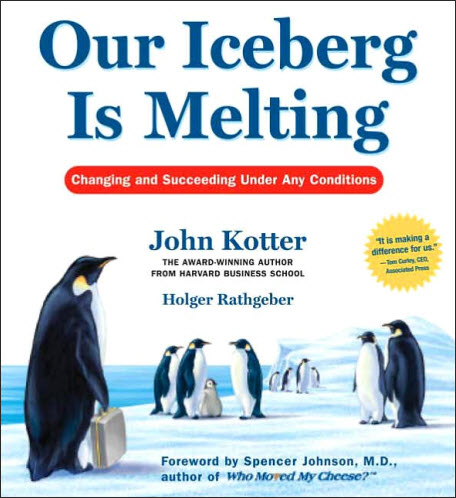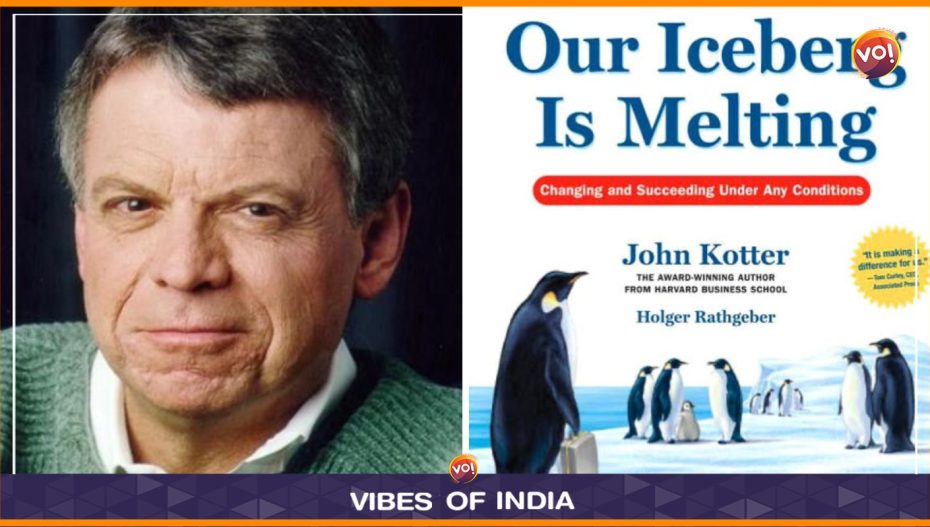Management schools teach their graduates many useful things, but leadership is not one of them. Management is about promoting stability, consistency, order, and efficiency. Managers have formal titles that describe their place in the organisational structures.
The purpose of leadership, on the other hand, is to bring useful change and leaders can emerge at any level of the organisation. The two roles complement each other and both are necessary to success. But not all managers are equipped to handle change and become leaders. Too many senior managers end up resisting change because it threatens their positions and makes them insecure.

At Harvard Business School, Professor John Kotter studied the leadership-management duality for 30 years and concluded that most companies are over-managed and under-led. “When it comes to leadership, there is still a big gap between what exists and what we need,” he says. “As the world gets more complex, it is no longer enough to have a few leaders at the top. We need to create 100 million new leaders.”
Kotter quit Harvard at the age of 54 because he wanted to take his ideas to a bigger audience. “Harvard is too elitist,” he says. “Its strategy has always been to influence a small number of people who might influence others. But that is not the way things really work.”

Moving away from academic writing, Kotter teamed up with Spencer Johnson (author of the best-selling Who Moved My Cheese?) to produce a story book that could be read by everyone. Titled Our Iceberg is Melting, the book tells the story of a colony of Antarctic penguins grappling with major change.
Kotter believes that meaningful transformation cannot be wrought by a few individuals at the top, so penguin leaders emerge at every level. There is young Fred, who first discovers that the iceberg is melting. Fred is not a penguin of any great influence, so he goes to Alice, a member of the leadership council, who he thinks might listen. Louis, the head penguin, is old and experienced, but it takes a lot of badgering from Alice before he can be persuaded to call a leadership council meeting to hear Fred’s presentation.
Then there is NoNo, a council member who opposes change from the outset and there’s Jordan, the intellectual, who is big on analysis (he wants to form a committee) but low on action. Once the penguins have been galvanised into action and prepare to abandon their iceberg for a safer location, a school-going penguin named Sally plays a major role in coming up with an execution plan.

The story is based on Kotter’s eight-step transformation process, which begins with creating a sense of urgency and then moves to creating a guiding team. The third and fourth steps involve a clear vision of the future and how it will be different from the past and then communicating it to everybody to get their buy-in. Not everyone will be a part of the buy-in, so the next step is to remove the obstacles to change. As progress is made, it is important to celebrate short-term wins without letting up the pressure to achieve long-term change. “One common mistake organisations make is to declare victory before the war is over, settling for too little, too soon,” says Kotter.
Finally, the transformation that has been achieved has to be institutionalised and the connections between behaviours and success must be articulated. Those leaders who have wrought the change then have to develop the next generation for succession.
Since the penguins are in a life-or-death situation, they accomplish major change within a span of a season. In the corporate world, transformations usually take longer. For example, Arvind, one of Ahmedabad’s largest companies, has undergone several transformations.
Once a traditional textile mill, making cloth for dhotis and pyjamas, Arvind became the world’s largest denim company in the 1990s. Then denim suddenly went out of fashion (replaced by Chinos), and Arvind nearly went bankrupt. The company survived by reducing its dependence on denim and is now doing very well. Ashima Syntex, another Ahmedabad-based denim manufacturer, was not able to change quick enough, and has now passed into history.
Also Read: Apple Warns Top Indian Opposition Leaders, Journalists About ‘State-Sponsored’ Attack on Phone












